Truckvan: Brazilian Mobile-Wheeled Solutions Manufacturer
Alcides Braga, Director-Partner at Truckvan and President of ANFIR (National Association of Manufacturers of Road Equipment)
Alcides Braga gives his assessment of the units and road equipment sector in Brazil and presents ANFIR, the National Association of Manufacturers of Road Equipment. He also gives an overview of Truckvan’s success story.
Interview with Alcides Braga, Director-Partner at Truckvan and President of ANFIR (National Association of Manufacturers of Road Equipment)
Can you give us an overview of the mobile units and road equipment sector here in Brazil?
In 2013 our performance was excellent. We reached a level of having approximately 180 to 190 thousand products. This didn’t quite beat the numbers that we reached in 2011 when we set a record in terms of units but it was a considerable number of both lightweight and heavyweight lines: small vehicles on chassis and towed and semi-towed vehicles, which are the heavy vehicles that represent the majority of products. In 2013 the heavy line reached a historic level of production and performance for us.
We now have a very vast portfolio of clients, both public and private. The company works in various sectors: we manufacture, we hire out, we manage, we hold events, etc. We have diversified a lot within the concept of mobile-wheeled solutions; we provide a whole series of services and solutions that can be implemented.
The sector in general experienced a growth of 11% from 2012 to 2013 regarding both lightweight and heavyweight lines. Therefore, 2013 was a good year for this sector. We are a bit less optimistic about 2014 due to a series of factors and events that make this year more complicated. For example, the carnival this year was in March, which is later than normal, we are also going to have the World Cup later this year and the general elections at the end of the year. All these events cause interruptions in our work and to the industry so the market suffers.
We have also experienced some changes in our financing policies. Our sector is basically supported by the BNDES (Brazilian Development Bank), a state bank that supplies credit lines to the sector. In 2014 there was an adjustment of the credit interest rates: this year interest rates reached 6% whereas last year they were between 3 and 4%. There was also a reduction of the bank´s quota for this financing; now we have to put down an initial deposit of 25% from our own funds or from third parties in order to complete the operation. Thus, these financial adjustments, along with the various events that Brazil is going to hold this year all lead us to suspect that 2014 is not going to be quite as successful as last year. However on a positive note, we are not going to feel too much pressure or experience too many problems resulting from a drop in turnover of what we estimate will be around 5%.
You are also the President of ANFIR, the National Association of Manufacturers of Road Equipment. Can you tell us a bit about the association?
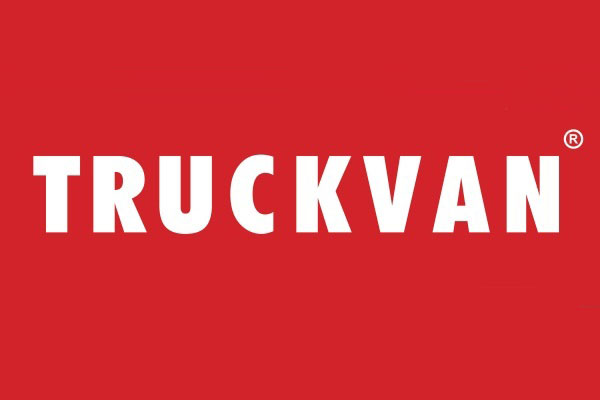
The association was founded 35 years ago. At that time, in the 1980s, 5 companies came together to form the association to organise the sector. I have been on the board for 12 years and I have been President for 2 years.
This is a sector with quite a uniform format. The main players are part of this association, sharing and exchanging information and they are all working towards achieving the same goals.
The association has some main guiding principles such as vehicle and transport safety. We work a great deal with thematic discussion groups in Brazil, prosing rules and regulations that will increase transport safety. We also discuss issues regarding legislation, particularly regarding taxes, where we bring forward our sector´s point of view.
We represent 154 companies and there are more than 1800 affiliates. We are present all over Brazil; in every large city, you will find one of our representatives. This association really represents the aspirations of our sector all over Brazil, including all of the varying regions from North to South. We have a good conceptual formation and we aim to take our demands to the government so that they can help and assist us in these areas.
What is your perception of the ease of doing business here in Brazil?
Doing business in Brazil is very difficult. We have the typical hindrances of a developing country such as difficulties in getting support and stimulus. I have been working here for a long time; I began working as a minor in fact and I have always had within me a desire to go forward and conquer my goals. I worked on some other projects when I was much younger that were not a success but I left them behind and entered this sector in January 1980 and I have never looked back. Those important years of experience working in Brazil are what have helped me achieve my goals here. It is very important to know the market that you are working in, so that you run fewer risks. Therefore, success cases in this sector are either specialists setting up businesses or franchises where investors purchase technology and knowledge in order to mitigate risks. I think that I failed in some previous businesses because I didn’t understand the market and it took me much longer to reach my objectives than someone who was familiar with that market.
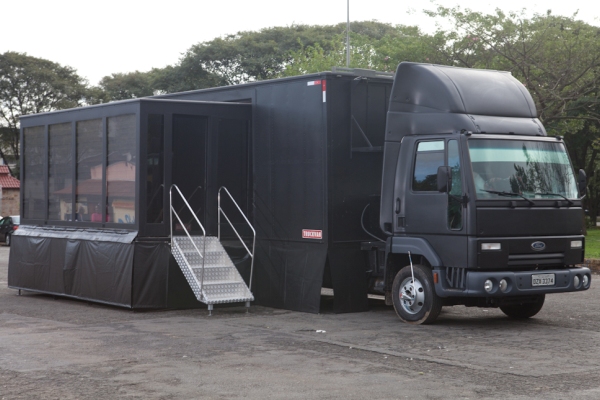
However when I decided to start this business, I was already familiar with the sector and I had travelled a lot of the country with the large companies that I had worked with previously. Thus, I had good foundations and work experience in this field.
Logically, I decided to start a business that was within my reach because at that time I didn’t have many resources available. I set this business up with Flávio my business partner and three others. Ever since then we have been growing more and more.
Brazil has a very high rate of companies that go bust; less than a third of companies survive their third year. I think this is very much linked to the environment that we are trying to work in, particularly regarding the absurd fiscal and tributary regulations. I also think that this is due to a lack of training and experience, which help entrepreneurs make the right decisions for the future. People have to be careful of initial success, to make sure they do not spend too much money in the beginning, which could be detrimental to their business. Overall, many factors lead to businesses failing in Brazil, a large proportion are institutional but a considerable amount are human factors.
When we set up and started this business, we didn’t really perceive how successful we were going to be. We didn’t make any business plans or set out a particular route for our business. Instead, our business has grown naturally over time and we have managed to position ourselves firmly in the market. I think that what has set us apart is that from the very beginning, we have been bold and we have faced challenges that were not very coherent with our reality, potential and size. We began to see where the opportunities were. There were tens of other offices larger than us at that time, but we managed to put ourselves out there and compete. Obviously, we exposed ourselves to some risk but we began to take on opportunities that the other offices did not want to take on. That is how we began to stand out in this sector.
We have been careful and coherent all along. We are always punctual; in over twenty years,we have never been late to pay a supplier, wages, the bank, etc. It has been a challenge at times to do this but it is one of our main priorities. I think that we have seen which mistakes can bring a business to ruin and we make sure we avoid them. We have been competitive, lucky and I would even say blessed by God.
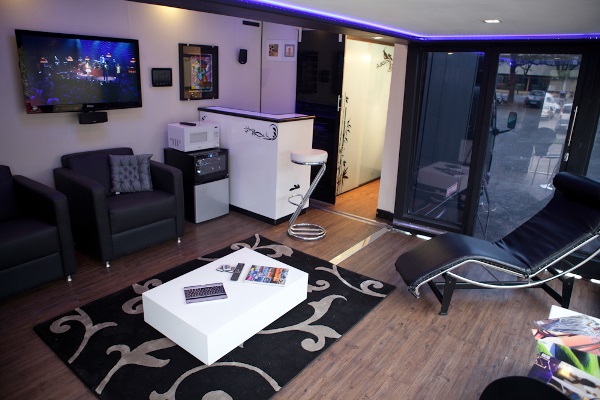
Can you tell us a bit more about your company Truckvan?
Truckvan has a background in transportation vehicles. In the 1990s, we began to produce containers for lorries, a very elementary product in a large market and with a lot of competition. Hence, we entered the market by manufacturing this standard product and from then on, we developed a whole line from this product. That first line still exists, as it is a very strong and dynamic line that has different margins and work conditions.
As we began growing our company with this line, we then began to meet the demand for other products. From 1996, we began to develop products that were not designed for cargo but instead for a particular activity. The company grew a huge amount with this second initiative. We manufactured nearly 150 different products last year, which is our record per capita. We varied our services to supply transport vehicles for social services, vans for educational courses and for health programs. We manufacture many vehicles for various health exams and consultations. We have also entered the field of vans for security and defence, which has been a good line for us. This opening up of services has meant that for the past 5 years we have seen growth of over 50% a year which has allowed us to invest a lot in factories, etc.
Today we have 330 employees and we are very well positioned as one of the top companies in this sector in Brazil. We are involved in all aspects of product development and design. We always try to include the clients as much as possible in this process. We try to adapt our units to the situations in which they are going to be used, for example in terms of access and in terms of the region in which they will be located.
Today, this concept of adaptability to customer needs is our main selling point. We work very hard with special technology and equipment, which we have shipped in to offer prompt solutions. Thus, we managed to add to our portfolio nearly all of the main businesses in Brazil. It is rare for there to be a project happening in our area of mobile units in which we are not participating. We now have a very vast portfolio of clients, both public and private. The company works in various sectors: we manufacture, we hire out, we manage, we hold events, etc. We have diversified a lot within the concept of mobile-wheeled solutions; we provide a whole series of services and solutions that can be implemented. Today, we can offer our clients not only the sale of a product but also the possibility of hiring a unit, we can offer management of shipping, a guard service and many other additional services. These added services have allowed us to differentiate ourselves from what currently exists in Brazil in this sector. We don’t have much competition in this line, there are very few companies that offer these services in Brazil and there are no companies that offer the service in the same way that we do. I would say that we are the most dynamic and problem solving company here in this sector.
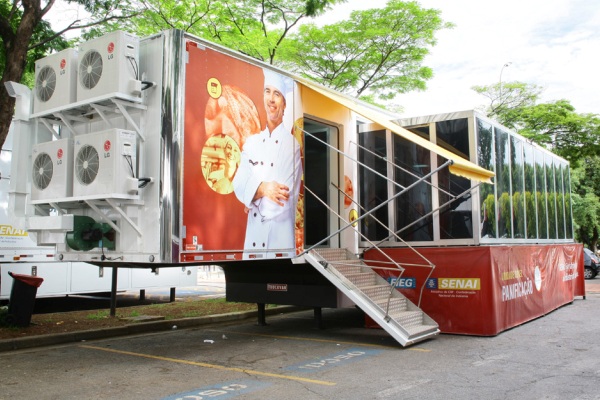
Can you tell us a bit about some of your success cases?
Our oldest client is the SENAI (the National Industrial Apprenticeships Association). We have been working with the SENAI in Sao Paulo for a long time now. We are close to having 100 mobile units in the state of Sao Paulo alone for the SENAI. Nationally, we also provide mobile units to other regional SENAI offices and for other entities of the federation. We also work with the Centro Paulo Souza, which is a technological training centre run by the Sao Paulo state government that uses some of the mobile schools that we manufacture. We have a series of clients from various governmental bodies both from a municipal and state level, for example the mobile health units that we provide for women´s health programmes, mammograms, ultrasounds, dental health units, eye clinics and medical testing units, etc. We have clients such as Mercedes Benz and Volkswagen who come to us for their events to provide them with mobile stands for trade fairs. We have other clients who use our units for promoting their products, for training and for networking. We also work with event organising agencies who use our mobile units for the backstage preparations for their events.
As you can see, we have a wide range of clients from a whole variety of sectors; however, I would say that the majority of our clients tend to be large companies. We direct our business model towards large companies, usually multinationals or otherwise public contractors from the state or municipal governments.
Can you tell us a bit about your growth strategy here in Brazil and if you have any plans to expand abroad?
We made the decision to make two acquisitions between 2011 and 2012 in order to support our plans for investment in factories and manufacturing units. One of the first investments we made was constructing a new production area here in Guarulhos, to separate production of cargo units and mobile units. This new site is due to be inaugurated in August this year. With this expansion, we aim to triple our container production rate from approximately 250 to 300 per month to 900 to 1000 per month. If we reach these production levels, we can become the leader in these products in Brazil. We will be more competitive on the market as we will be able to reduce our costs significantly.
We have also planned to construct another production zone that will be dedicated to the other services we offer and to other niche areas that we intend on entering in the future. Currently, we are in the paperwork stages of environmental licenses, planning permission, etc. We hope that in 2 or 3 years, this will be going ahead and we will have a new profile. This company has lots of potential and there is a large market in which to grow. Over the years, we have built up good relationships with our clients and agencies.We are a long-standing, respected company within this field and we have very good performance scores. We don’t have any kind of restrictions holding us back,whether technological or in terms of our philosophy. We are very willing to open up scope in terms of our products and the market. Hence, we are concentrating our investment into these plans in order to increase our variety of products and our production rates. I would say that these fundamental goals are directing our next steps in terms of investment and expansion.
What are the main challenges that your company faces?
Logically, when you work in a market such as this one, where our products are very visible and can generate a lot of talk, for example when we work in situations regarding public policies such as health and education programmes, etc., you can´t keep this business a secret. Obviously, when people see these successful campaigns they become interested in the opportunities in this market. Therefore, I think that our main challenges today are making sure we continue to modernise our products, find solutions that incorporate more technology, and bring in additional knowledge in order to maintain our differentials and remain at the forefront of this sector. We need to make sure we continue to be known as a company that fulfils its obligations and delivers the best service to its clients.
We have products that range from 500 thousand reals to 4 million reals and I think that any manufacturer would be interested in having a product that adds as much value as we do. The challenge is to remain strong, continue developing new products and enter new markets just as we have done by entering the field of exhibition security, the energy chain, etc.
Logically, we have to continue the path that we have been following up until now, which means being a stable company that moves cautiously and is very responsible financially. I think that fortunately, we have dedicated ourselves to building this company with such values and as a result, we are exposed to fewer risks.
Obviously our expansion plans need a lot of investment. So far we haven’t made any final decisions of how we are going to carry out these investments, we may do it alone or in partnership or we may change our profile slightly within the company itself. I think it is time for us to look at the future and consider the fact that once the company reaches a certain size it could be quite difficult to sustain it alone. We will need new knowledge and fresh eyes. I think that now we are more open than ever to these new insights and to looking for new possibilities and alternatives.
I think that there is a lot of market out there for us to conquer and that there are many possibilities of expanding internationally with both of our product lines. The markets in South and Central America as well as in Africa are similar to Brazil and so could represent a good market for us. As a result, our production volume to attend these other countries would increase enormously and so I think that one of the main pillars to our growth plan is exports.
How do you see the sector in two or three years´ time?
This sector is very stable. Two thirds of the cargo in Brazil is transported by roads and highways. There does seem to be a trend to move towards other modes of transport and this is something that everybody would like to see, including us. At the same time, there are many new concessions for highways and plans for other projects, which don’t form part of the new train or waterway networks. Therefore, I think we are going to have a steady market for a long time. It could be that we could see a random fall in sales for some particular reason but as a whole, over a period of two or three years I believe the trajectory for the sector is very steady.
Over the past few years, we have experienced growth outside of our original line, which is taking us to a new level of 170 thousand products per year. We can reach a level of 215 thousand products without needing huge investment. For now, we can meet the demand comfortably but we are investing in factories and acquisitions for the future.
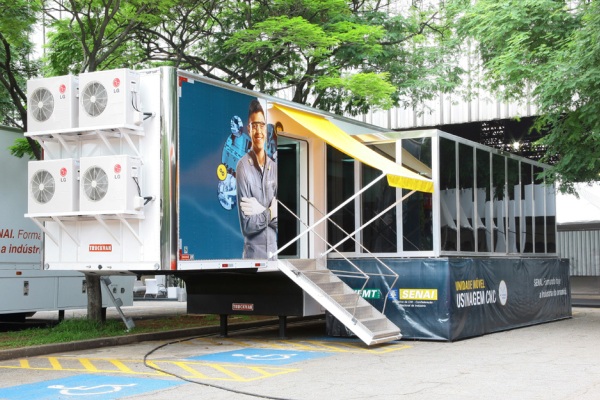
We at Truckvan are known for taking on a challenge. We don´t say no to a deal until we are sure it can´t be done. We do think that this year is going to be a greater challenge than last year. We are going to have to be more alert this year.
We have reached some of our goals for this year already. We have had some excellent orders and we have managed to reach some favourable tributary agreements for the sector that will be very important for our results. Therefore, this first semester of the year has been very successful and we are already looking towards the second semester to secure good orders so that we are not set back later on this year.
In 2013 we reached a record growth of 81% compared to the year before. I would say that it is nearly impossible to sustain that kind of growth but we have to aim for good growth nonetheless. We are sure that this year we are going to achieve better internal footing. I think that this is going to be a reasonably good year for us; I don’t think it will be remembered as a disaster year for the sector or for us in particular.
What is your vision for Truckvan in two or three years?
Well, if we manage to achieve our goals of opening these two new factories I see a very bright future. We have also held a few discussions with various multinationals from Europe, USA and Canada, who are not yet present in Brazil but are interested in entering the Brazilian and Latin American market. I see a lot of possibilities for the future for expansion and growth. I think we can double in size in the next 5 years. This of course depends on our structural organisation and our continued successful management and leadership. I think that there are still new lines out there that have strong demand, which we can begin to develop when we have improved infrastructure. I am sure that with these new factories we can advance a great deal in the coming years.
You mentioned earlier that it is not easy to do business in Brazil. What would be your message to a foreign investor who is interested in coming to do business in Brazil?
We have a lot of multinationals here in Brazil, for instance our automobile industry is mostly made up of multinationals. The situation here used to be much worse than it is today in terms of doing business. Now we have difficulties and it is confusing but we have legislation and regulations that have to be followed. We are really moving forward in terms of environmental regulations for example. We have made a whole series of advancements which can be complicated but have to be taken on-board.
I think that most foreign business people thinking of investing in Brazil understand that they need to have a Brazilian manager or someone local who has experience in Brazilian business and knows how things work here in order to help them with all the confusing legislation, etc. I would definitely advise to look for internal local support but I would also say that Brazil is a great country with lots of possibilities for growth. Brazil has huge land and water resources, we have enormous agricultural potential and we have serious infrastructural needs. This is also a country that doesn’t suffer from natural disasters such as earthquakes or volcanoes. Mother Nature has been very generous with us. I think Brazil has a strong economy; we are the 5th or 6th economy in the world. We have a huge internal market and our purchasing power is increasing. I have high hopes for the investments in infrastructure and energy as there are plans for mega-factories and new highways and railways.
I think that Brazil may be a country that is difficult to do business in but that is compensated by the large number of opportunities for growth that exist here. I think that we are the most institutional country in this region with the most mature democracy and with the most freedom. Here you don’t run any other risks than the normal market risks. If you are looking into investing in a country in the developing world, I think that Brazil is the best choice.
FAIR USE POLICY
This material (including media content) may not be published, broadcasted, rewritten, or redistributed. However, linking directly to the page (including the source, i.e. Marcopolis.net) is permitted and encouraged.